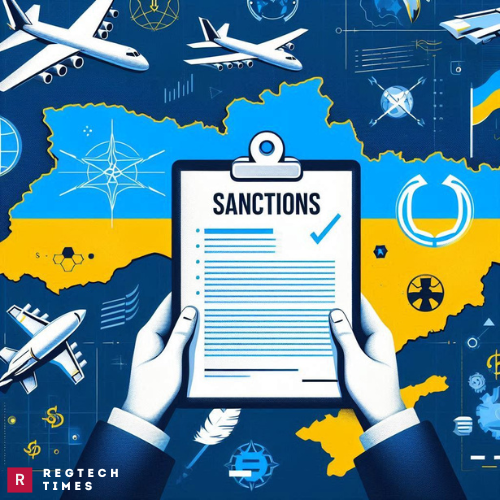In a decisive move to bolster its defense against ongoing aggression, Ukraine has imposed new sanctions targeting individuals and legal entities from Russia, Iran, and China. These Ukraine sanctions, formalized by President Volodymyr Zelensky, follow a resolution by the National Security and Defense Council of Ukraine on September 19, 2024. The sanctions highlight the country’s commitment to countering military cooperation that directly threatens its sovereignty and national security.
The Scope of the Ukraine Sanctions
The recently enacted Ukraine sanctions are extensive, involving six individuals and 40 legal entities from the three nations, all subjected to restrictions for a period of ten years. This initiative primarily stems from concerns surrounding the supply of Iranian ballistic missiles to Russia, which have been instrumental in bolstering Russian military capabilities during the ongoing conflict. Furthermore, the sanctions specifically target companies associated with the production and distribution of Iranian Shahed kamikaze drones—unmanned aerial vehicles actively deployed by Russian forces in attacks against both civilian and military targets within Ukraine.
A Focus on Iran Air in the Ukraine Sanctions
One of the most notable components of these Ukraine sanctions is the restriction placed on Iran Air, the largest airline in Iran. This airline plays a crucial role in transporting both passengers and cargo, including military supplies. Analysts suggest that targeting Iran Air represents a strategic effort to disrupt logistical pathways used by Iran to support its military cooperation with Russia. However, experts caution that merely imposing sanctions on a single airline is insufficient to achieve long-term efficacy in curbing the flow of military resources.
The Need for Comprehensive Measures in Ukraine Sanctions
Denys Hutyk, a Senior Advisor to the Economic Security Council, has articulated the necessity for a more strategic and holistic approach to Ukraine sanctions. He emphasized that it is not enough to sanction a prominent airline; comprehensive monitoring of circumvention schemes is crucial. These schemes often enable sanctioned entities to continue their operations under the radar. Blocking shell companies that facilitate military cooperation and keeping a close eye on European air carriers and airports that might engage with these sanctioned entities are imperative for the effectiveness of the sanctions.
New Zealand Imposes New Sanctions on Russia and Belarus Over Ukraine Conflict
The Economic Security Council’s analysis has also highlighted significant discrepancies in how Western partners have implemented sanctions against entities involved in military cooperation between Iran and Russia. For instance, it was noted that only the United States has imposed restrictions on the Iranian company Sahara Thunder, which is controlled by the Iranian Ministry of Defense and is implicated in the production of Shahed drones in Russia. Such inconsistencies can dilute the overall impact of the Ukraine sanctions and allow for loopholes that could be exploited.
The Importance of Coordination Among Allies in Ukraine Sanctions
As Ukraine navigates the complex landscape of international relations and military cooperation, coordination among Western allies emerges as a vital component for the success of these Ukraine sanctions. The need for synchronized sanctions regimes cannot be overstated, as varying levels of commitment and enforcement among allies can hinder the overall effectiveness of the measures imposed. Collaborative efforts to share intelligence and streamline sanctions can create a more formidable barrier against military supply lines that threaten Ukraine’s sovereignty.
Moreover, with the evolving dynamics of the conflict, it is essential for Ukraine and its allies to remain vigilant and adaptable in their strategies. Regular assessments of the effectiveness of sanctions, along with real-time intelligence on military cooperation activities between Russia and its partners, will be crucial in ensuring that these restrictive measures achieve their intended outcomes.
The new Ukraine sanctions imposed against Russia, Iran, and China signify a robust effort to combat military collaboration that undermines its national security. By targeting key entities involved in military supply chains and emphasizing the need for comprehensive measures, Ukraine is taking a proactive stance in addressing the multifaceted challenges posed by foreign aggression.
As the conflict continues to evolve, it is paramount for Ukraine to maintain strong alliances with Western partners, ensuring that the collective response to military cooperation remains unified and effective. The path ahead is fraught with challenges, but Ukraine’s commitment to securing its sovereignty through strategic Ukraine sanctions reflects a determined effort to counteract the threats it faces on multiple fronts.


